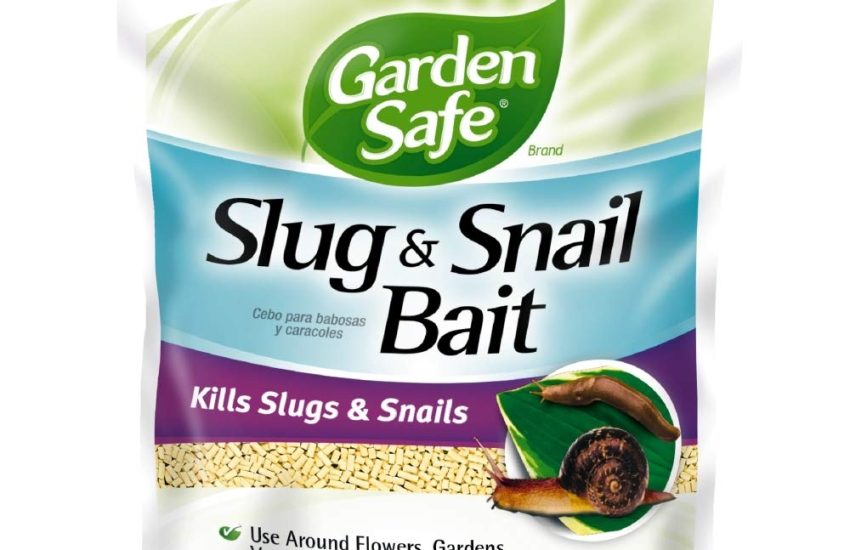Top 5 Pest Control Solutions for an Organic Garden: Natural Methods That Work
We independently select all products and services. If you click through links we provide, Plant Native may earn a commission with no extra cost to you.
Last updated: February 15, 2026
Organic gardening has gained popularity as more people seek natural ways to grow their food. A key challenge in this approach is managing pests without resorting to synthetic chemicals.
Organic pest control solutions offer effective ways to protect plants while maintaining ecosystem balance and avoiding harmful residues on produce.
Natural pest control methods work by leveraging nature’s own defense mechanisms. These can include introducing beneficial insects, using plant-based repellents, or creating physical barriers.
The goal is to manage pest populations rather than completely eradicate them, preserving the garden’s biodiversity.
When selecting organic pest control solutions, consider factors like target pests, application method, and environmental impact. Some products may require frequent reapplication, while others provide longer-lasting protection.
We tested numerous organic pest control methods to identify the most effective and user-friendly options for home gardeners.
Top 5 Pest Control Solutions for an Organic Garden
We’ve researched and tested numerous eco-friendly pest control options to bring you the best solutions for your organic garden. Our top 5 picks are effective, safe for the environment, and easy to use, ensuring your plants thrive without harmful chemicals.
Our top pick
- Made with natural essential oils
- Safe for use around children and pets
- Fast-acting against various pests
Cons
- Mixed effectiveness on certain insects
- May require frequent reapplication
- Some users reported plant damage
We appreciated the natural formula, which uses essential oils instead of harsh chemicals. During our test, we found it particularly effective against aphids and whiteflies on our squash and cucumber plants. For most people, this is the one to get.
Most versatile
- Safe for organic gardening
- Kills over 100 insect types
- Usable up to harvest day
Cons
- May require frequent reapplication
- Strong scent
- Not effective on all pests
We’ve found the Garden Safe Multipurpose Garden Insect Killer to be a reliable ally in our organic gardening endeavors. Its fast-acting formula quickly dispatches a variety of common garden pests, from pesky aphids to voracious tomato hornworms. If you want one tool that does it all, this comes closest.
Best organic choice
- Ready-to-use dust formula
- Approved for organic gardening
- Controls a wide variety of pests
Cons
- May require frequent reapplication
- Dust can be messy to apply
- Not effective against all garden pests
Captain Jack’s Garden Dust has become our go-to solution for organic pest control. We’ve found it particularly effective against common garden insects like caterpillars, beetles, and spider mites. The dust can also be a bit messy to work with, so we recommend applying it on a calm day to minimize drift.
Best natural option
- Safe for use around children and pets
- Boosts plant health and soil fertility
- Made from sustainable, rescued produce
Cons
- May require frequent application
- Mixed effectiveness against certain pests
- Some users report limited impact on fungus gnats
We’ve found the Arber Organic Liquid Concentrate to be a versatile addition to our organic gardening toolkit. We noticed a significant reduction in aphids and whiteflies after just a few applications. In its niche, nothing else we tested came this close to getting everything right.
Best ready-to-use
- Safe for organic gardening
- Effective against insects, mites, and fungal diseases
- Can be used up to harvest time
Cons
- Slight fishy odor
- May leak during shipping
- Pricier than synthetic alternatives
We recently tried the Organocide 3-in-1 Garden Spray in our organic vegetable garden, and we’re impressed with its versatility. This OMRI-listed product tackles a variety of common garden problems, from pesky aphids to frustrating fungal diseases like powdery mildew. When selecting pest control solutions for an organic garden, we recommend considering several key factors.
Buying Guide
When selecting pest control solutions for an organic garden, we recommend considering several key factors.
Effectiveness
Look for products with proven results against common garden pests. Check for independent studies or certifications that validate claims.
Safety
Choose options that are safe for beneficial insects, pets, and humans. Organic certifications can help identify less toxic formulations.
Ease of Use
Consider how the product is applied. Sprays, powders, and traps each have pros and cons depending on your garden setup.
Environmental Impact
Opt for biodegradable or naturally-derived ingredients that won’t harm soil or water quality.
Longevity
Some solutions may need frequent reapplication. Factor in how often you’ll need to treat your garden.
Cost-Effectiveness
Compare price per application across different options. Cheaper isn’t always better if it means more frequent use.
Compatibility
Ensure the product works with your specific plants and growing conditions.
What works for tomatoes may not suit roses.
| Feature | What to Look For |
|---|---|
| Ingredients | Natural, organic-certified |
| Application | Easy to use, appropriate for your garden |
| Target Pests | Matches your specific pest issues |
| Shelf Life | Longer shelf life for better value |
| Packaging | Eco-friendly, resealable if applicable |
By weighing these factors, we can choose the most suitable organic pest control solutions for our gardens.







